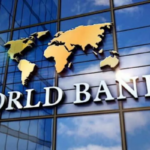The Central Bank of Nigeria (CBN) has pledged to build on ongoing financial system reforms following the country’s removal from the Financial Action Task Force (FATF) grey list. The apex bank said it would sustain measures that promote compliance, innovation, and trust in the financial sector to reinforce stability and strengthen Nigeria’s credibility in the global financial system.
Read also: IMF projects Nigeria’s debt-to-GDP ratio to decline to 35% by 2026
Nigeria removed from FATF grey list
The FATF, the global body responsible for setting standards against money laundering and terrorist financing, formally announced Nigeria’s removal from its list of jurisdictions under increased monitoring. The decision came after an on-site evaluation confirmed the country’s progress in addressing identified deficiencies in its anti-money laundering and counter-terrorist financing frameworks.
In a statement on Saturday, the CBN described the delisting as a major step in Nigeria’s financial reform process.
Read also: Femi Otedola raises FirstHoldCo Holdings with N2bn share deal
“The FATF’s decision to remove Nigeria from the grey list is a strong affirmation of our reform trajectory and the growing integrity of our financial system,” said CBN Governor Olayemi Cardoso. “It reflects a clear policy direction and the coordinated efforts of key national institutions working together to deliver sustainable, standards-based reforms. Our priority now is to consolidate these gains, ensuring that compliance, innovation, and trust continue to advance hand in hand to reinforce financial stability and strengthen Nigeria’s global credibility.”
Read also: FG backs $220m penalty on Meta for mishandling Nigerians’ data
The road to delisting
Nigeria’s removal from the FATF grey list follows a two-year reform programme coordinated by the Federal Government and supported by key institutions including the CBN, the Federal Ministry of Justice, the Nigerian Financial Intelligence Unit (NFIU), and the Economic and Financial Crimes Commission (EFCC).
According to the CBN, several reforms were critical to the evaluation conducted by FATF and its regional partner, the Inter-Governmental Action Group Against Money Laundering in West Africa (GIABA). These included:
- Strengthened oversight of financial institutions through updated AML/CFT regulations and risk-based supervision.
- Broader compliance monitoring across remittance channels, bureaux de change, and fintech platforms to improve traceability.
- Improved inter-agency data sharing and enforcement coordination.
- Implementation of market governance measures such as the Foreign Exchange Code (FX Code) and the Electronic Foreign Exchange Matching System (EFEMS).
These initiatives have enhanced governance and transparency, aligning Nigeria’s financial system more closely with global standards.
Read also: Afreximbank, MDGIF sign MoU to mobilise $500m for gas infrastructure in Nigeria
Expected impact on businesses and households
The delisting is expected to bring measurable relief to businesses and households by reducing compliance costs, easing access to international finance, and enabling faster and cheaper cross-border payments.
Over time, these improvements are projected to support smoother trade settlements, more efficient remittance flows, and greater access to foreign exchange. The CBN said these outcomes would help foster enterprise growth, financial inclusion, and overall economic stability.
Nigeria’s exit also coincides with broader recognition of its economic reform progress. Moody’s and Fitch have recently revised Nigeria’s credit outlook upward, while the International Monetary Fund’s (IMF) 2025 Article IV Consultation acknowledged improvements in reserves, transparency, and policy credibility.
Read also: Tech leaders converge in Nigeria to support $1 tn digital economy vision
Broader regional context
Nigeria joins South Africa, Mozambique, and Burkina Faso as the latest African countries to be removed from the grey list, reflecting a wider regional effort toward financial integrity and international compliance.
The CBN reaffirmed its commitment to maintaining a sound, transparent, and trusted financial system, stating that it would continue working with domestic and global partners to sustain reforms that promote inclusive and sustainable economic growth.
What to know
South Africa and Nigeria were added to the grey list in February 2023, Mozambique in October 2022, and Burkina Faso in February 2021.
Nigeria’s exit marks a confidence boost for its financial system. Being on the grey list often increases transaction costs and complicates cross-border dealings due to stricter compliance checks. With its removal, Nigeria is expected to experience smoother international transactions, including remittance inflows averaging about $20 billion annually.










